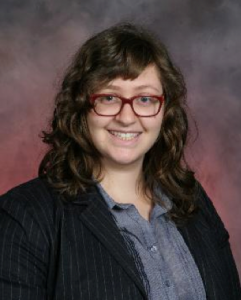by Mimi Zander
The other week I had the pleasure of attending a cat circus. It was a stage show of 10-15 cats (plus a chicken, a groundhog, and 2 curious rats) walking on tight ropes, completing dangerous jumps, and a cat band complete with drums, guitar, and cow bell. In the beginning of the show the cat herder, Samatha Martin told the audience that before we get to the really great stuff, the next few minutes will be a segment called the “Lowering of the Audience’s Expectations.” We would witness tricks that weren’t quite ready for prime time by cats that were not as well behaved as some of the more senior performers.
One cat refused to push a shopping cart. Another cat refused to jump through two very literal hoops. The cat wranglers on stage were completely poised and pleasant while their performers sat quietly on stage, not doing any of the tricks they had practiced. This was an exercise in patience for all of us.
Research sometimes feels like a cat circus. When working in research as a student, particularly for a relatively brief amount of time, your expectations must be realistic. Research is slow moving. From internal review board submissions to proof of concept to hiring and training, the bureaucracy is understandably dense. At the root of it all is improving patient outcomes and I understand that many of these hurdles are in place to protect research subjects. That being said, the pace is still slow, and expectations should be adjusted accordingly.
This summer I have worked on three distinct projects. The first project is the alarm fatigue study, previously mentioned in my first two blog posts. We’ve made a lot of progress – data collection is nearly finished and we have made a serious dent in reviewing video and alarm annotation. The next project is a systematic review on alarm fatigue. After more than 1.5 years of meticulous work by the team, we are getting ready to submit our manuscript for publication. The third project is in a very early stage. We are trying to evaluate who is generating the most alarms in our hospital and why. We’ve had some difficulty getting this off the ground, but are almost on our way to collecting and analyzing data. I look forward to continuing to work on this during the school year.
Not all of these projects will necessarily lead to an important finding, but most of them probably will. As a medical student, I feel it’s important to work on a variety of research projects in order to gain varied experiences in research, and increase my odds of finding something that will be impactful in the care of patients.
Patience and diligence are key. Sometimes you lose an entire day of data because of a technological problem or human error. The real challenge is how you handle the recovery. In research, you dust yourself off, report your error, figure out what went wrong, and take steps to ensure that it never happens again. And you do this over and over until you get it right. It’s not quite as graceful at the cat circus.
The real question: after this summer (preceded by two years of other research experiences) and this unflattering cat circus analogy, do I want to stay involved in research?
(Drumroll please, by the cat drummer in the cat circus)
Absolutely. The appeal of potentially improving outcomes for many more patients than I could ever possibly reach in a lifetime of clinical work is too exciting and too meaningful to pass up. I would enthusiastically recommend it — both research and the cat circus.
 Mimi Zander is a rising second year student at the Touro College of Osteopathic Medicine in Harlem, New York City. She is one of three medical students to receive SHM’s Student Hospitalist Scholar Grant with which she is completing scholarly work related to patient safety in the hospital. Mimi received her B.A. from Rutgers University in 2011 with a concentration in English, and she completed her post baccalaureate studies at the University of Pennsylvania.
Mimi Zander is a rising second year student at the Touro College of Osteopathic Medicine in Harlem, New York City. She is one of three medical students to receive SHM’s Student Hospitalist Scholar Grant with which she is completing scholarly work related to patient safety in the hospital. Mimi received her B.A. from Rutgers University in 2011 with a concentration in English, and she completed her post baccalaureate studies at the University of Pennsylvania.



Leave A Comment